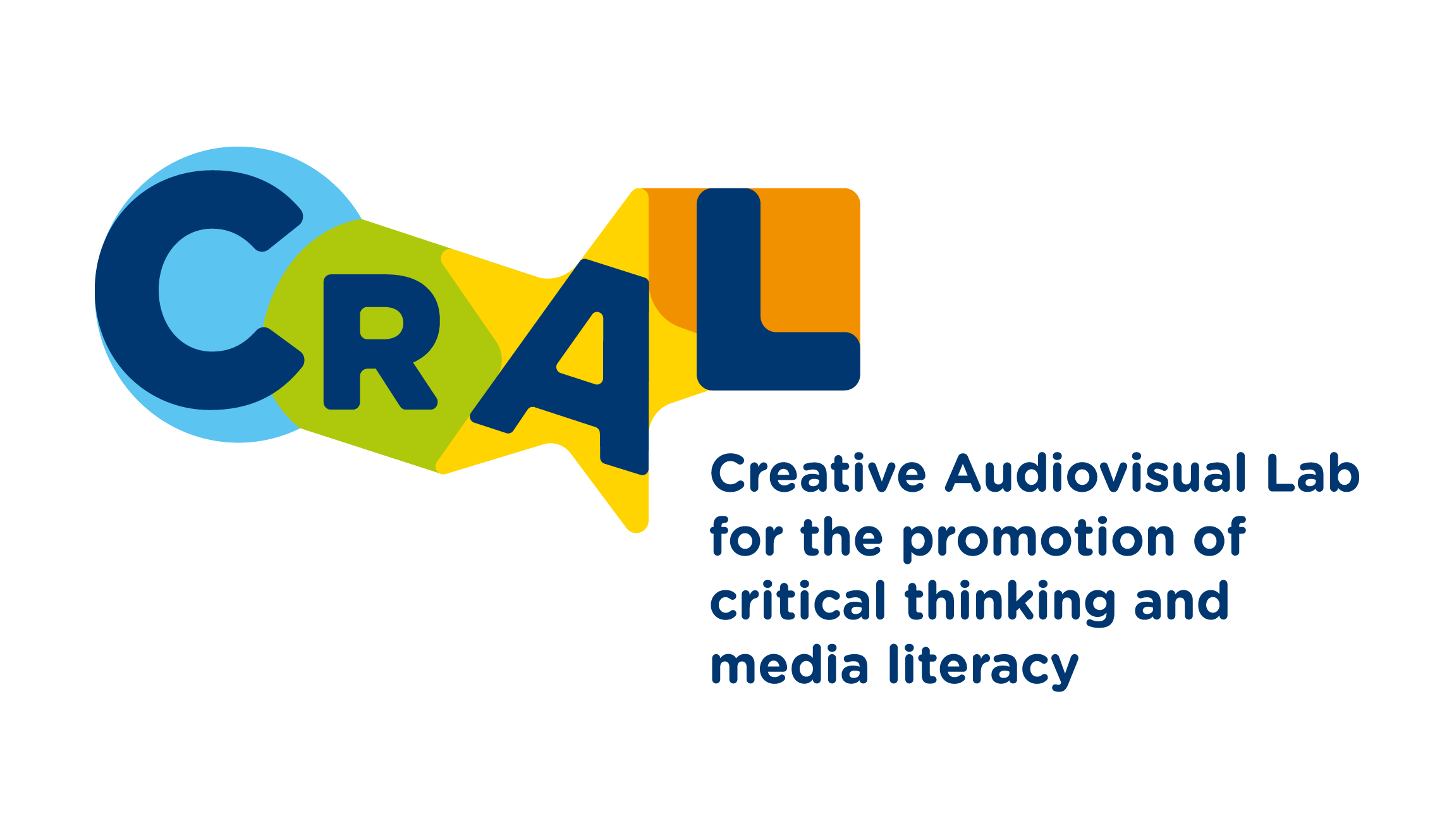
11 Jan CrAL – Creative Audiovisual Lab for the promotion of critical thinking and media literacy
11 Jan, 2021
Facebook: @creativeaudiovisuallab
Digital technologies have changed the way we see and understand the world, especially for young people. Their perception and interactions have been shaped by audiovisual contents and the dynamics of the virtual dimension. Generation Z are the so-called “digital natives” – young people who grew up in the digital age. But even though they are in constant contact with technology and have access to an unlimited amount of information, they sometimes lack the abilities to analyse and evaluate the veracity of the messages they receive from the media.
In order to enhance their media literacy skills and provide them with the tools they need to understand the world they live in, to cultivate students’ critical thinking and help them understand the responsibility and the power of their voice, seven partners from Belgium, Croatia, Greece, Italy, Lithuania, and Spain have joined forces in the CrAL project. Their goal is to enhance critical thinking and media literacy among learners, parents and educational staff.
The project scales up the good practice “Creative audiovisual writing and reading”, developed and already tested in Italy, to five different education systems and contexts in Croatia, Greece, Italy, Lithuania, and Spain. In the words of Annio Gioacchino Stasi, Italian film director and educator, and author of the good practice, “the methodology is trying to show the link between images and words. We see the effects of the images that confuse, lie, destroy, and unfortunately, at times convince”. CrAL aims to create an audiovisual literacy programme that is not a training in marketing but fosters critical and out-of-the box thinking.
CrAL addresses young people (14-19 years old) by involving them in reinterpreting and producing audiovisual content. Secondary school teachers and trainers working in non-formal environments will be trained how to educate their students in creative audiovisual reading, writing and production. Parents and members of the community will also be involved as active protagonists in order to maximise CrAL’s impact on a local, national and European level.
Specific objectives of the project are:
- To provide school teachers and trainers with the necessary knowledge and skills on audiovisual education and the “Creative audiovisual writing and reading” methodology via a blended course with online video lessons accessible via the CrAL online platform complemented by f2f workshops organised by partner organisations in each country.
- To empower students (aged 14-19) in the critical reinterpretation and production of audiovisual content, promoting the acquisition of critical thinking and media literacy competences and skills
What have we done so far?
- We have designed an innovative training path for teachers and trainers;
- We have produced the training course with multilingual and multimedia educational contents for teachers (video lessons and EduPacks);
- We have trained 23 tutors in the transnational training;
- We have set up the CrAL online platform;
- We have developed a project leaflet with more info about the project.
- We organised a pilot of “Creative audiovisual writing and reading” methodology in five European countries through 1. a blended course for teachers and 2. workshops with students led by the teachers and supported by our tutors. This led to the production of audiovisual content (films) by young people.
- 60 teachers were trained in a 5-week blended course starting from September 2022 (expected: Sep-Dec 2022);
- 250 students (50 per partner) were involved in the creation of audiovisual contents following the course for teachers (expected: Jan-Jun 2023).
What’s next?
- We are currently working on creation of the international Community of Practice on the CrAL online platform to exploit the results and maximise the impact of the project. In addition to the online course for teachers, the platform will contain all audiovisual products developed during the pilot experimentation (expected: Sep 2022-Dec 2023).
- We will produce policy recommendations on the use of audiovisual contents for inclusive education (expected: Nov-Dec 2023).
PROJECT PARTNERS
- ALL DIGITAL, Belgium – Coordinator
- EGInA, Italy
- Istituto Centrale per I Beni Sonori e Audiovisivi (ICBSA), Italy
- Universitat Autònoma de Barcelona (UAB), Spain
- Hellenic Open University (HOU), Greece
- Centre of Technical Culture Rijeka (CTC Rijeka), Croatia
- Association Langas į ateitį (LIA), Lithuania





